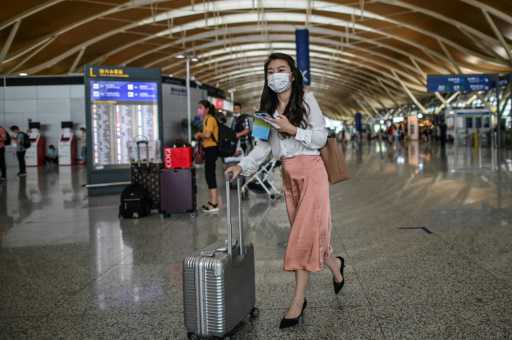China's foreigner ban leaves global businesses in limbo
15 June, 2020

China's coronavirus travel ban is definitely wreaking havoc among foreign corporations and international schools, with various fearing for his or her future seeing as executives, teachers and learners happen to be left stranded in their home countries.
A ban on most foreigners entering the united states was applied in March as the outbreak gathered tempo overseas -- leaving family members separated and businesses struggling without key personnel.
Even people that have valid residence or work permits, or who manage businesses, have already been shut out, and there is further doubt about when the restrictions will be lifted after a fresh cluster of infections was detected in Beijing over the weekend.
Jessie Lim, the founder of Regularity Advertising and marketing & Event, has been stranded found in Singapore since visiting there in January.
"(The ban) seriously shocked me," she advised AFP, adding that her Chengdu-based firm earned nothing in the first 90 days of the entire year as the virus eliminate gatherings and events.
Lim had been because of return in February whenever a 14-working day quarantine on arrivals was imposed -- as a result she delayed in the expectation that measure would be lifted.
Rather, she was stunned when the ban was released and she was struggling to return at all.
Business is likely to grab in the coming a few months but Lim struggles to meet customers, and worries she will suffer further losses if she remains away much longer.
Although China create "fast-track" channels with most countries for major business personnel to come back, the process is still difficult and requires an invitation letter and approval by the foreign ministry.
One Beijing-based Middle Eastern restaurant told AFP the founders are looking for new owners for his or her downtown eatery after being stranded found in Israel, and were considering building the move home permanent.
St. John Moore, chairman of the Uk Chamber of Commerce in China, named this week for something allowing British nationals who are in China to come back with their families.
"A growing number of Uk businesses get China their regional hub and basic executives in China with roles over the place. In this current environment, it is not possible to continue that," he said.
An American Chamber of Commerce survey in-may discovered that 90 percent of 109 member companies had business procedures hit by global travel disruptions, which was a top concern.
Over fifty percent said being unable to return expatriate personnel to China was first another worry.
Joerg Wuttke, president of the EU Chamber on China added it is "recruitment season" now, when companies move as much as 100 staff members to new roles or appointments.
"But it could possibly be very hard now (to keep staff in China) because many members of the family are separated... many persons may just lower their stint short, go back home and stay house," he told AFP.
"How do we make China an excellent destination to live when flights aren't operating, quarantine conditions happen to be unfavorable and it's really hard to get visas?"
International schools have also seen students and teachers stranded abroad.
The British Chamber's Moore said a "significant number of Uk teachers remain outside China", presenting challenges for schools to resume in-person classes.
"If this isn't resolved, to make China a place where international families with children may continue to work... we will see a reduction in the attractiveness of China as a place for long-term engagement," he said.
Some parents have called for refunds in hefty tuition costs with classes struggling to resume, increasing the schools' economical woes.
"The crisis happened only at the moment when we were likely to pay the next term," stated Karim Vincent Berrada, whose kid attends the French International School in Beijing, adding most father and mother were angry at appearing made to fork out despite there being only online classes.
International schools have made huge investments on China in recent years -- hoping to tap demand from expats and wealthier Chinese families seeking an international-standard education because of their children.
The quantity of foreign independent brand campuses has rocketed from seven in 2012 to 74 this season, according to ISC Research.
International schools had recently been facing challenges as a result of falling amounts of expats surviving in China recently.
Sam Fraser, brain of field exploration at ISC Analysis, warned some schools "might not be able to offer refunds or savings or perhaps bear any financial damage".
Funds for other tasks may have to be placed on hold if dollars is redirected to keep the school performing, he said, and "we believe that it is inevitable that some academic institutions will be required to close".
Source: japantoday.com
TAG(s):
